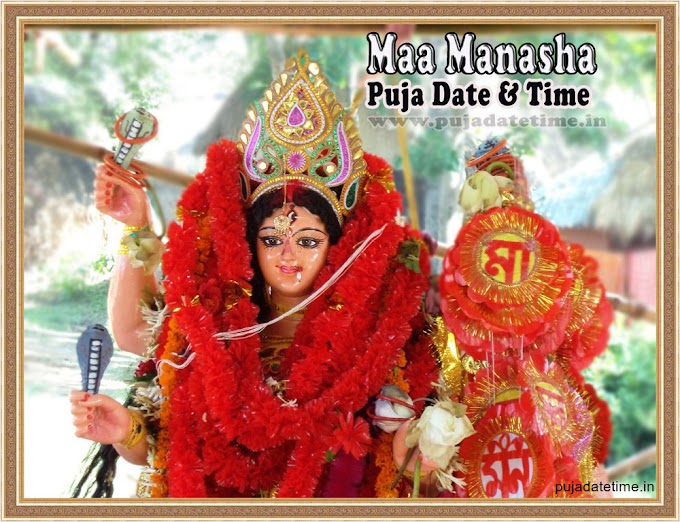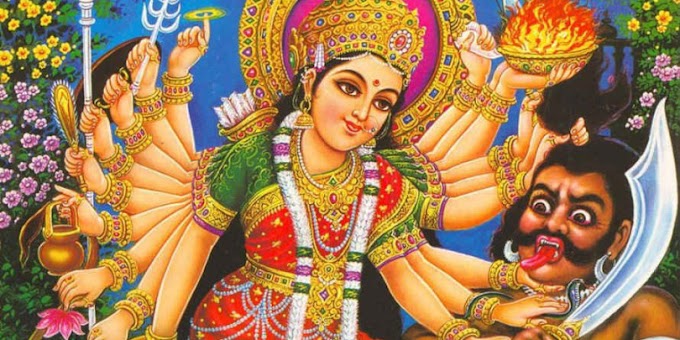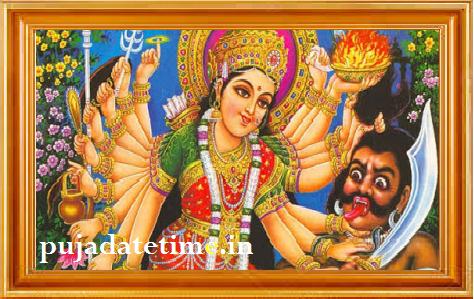Hanuman Jayanti is one of the most auspicious and significant festivals celebrated by Hindus all over the world. It marks the birth anniversary of Lord Hanuman, who is considered to be an incarnation of Lord Shiva and a devoted follower of Lord Rama.
According to Hindu mythology, Lord Hanuman was born on the full moon day (Purnima) in the month of Chaitra. The festival usually falls in the months of March or April, and it is celebrated with great enthusiasm and devotion across India.
The celebrations of Hanuman Jayanti start early in the morning with prayers and offerings made to Lord Hanuman at temples dedicated to him. Devotees fast on this day and visit Hanuman temples to offer special prayers and seek blessings.
One of the most famous Hanuman temples in India is the Hanuman Temple in Connaught Place, New Delhi. The temple attracts thousands of devotees on this day, who come to offer their prayers and seek blessings from Lord Hanuman.
The festival also involves the recitation of the Hanuman Chalisa – a devotional hymn that praises the qualities and virtues of Lord Hanuman. It is believed that chanting the Hanuman Chalisa can bring peace, prosperity, and good health to those who recite it with devotion.
On Hanuman Jayanti, people also perform charitable acts and donate food, clothes, and other essentials to the needy. This is seen as a way of seeking blessings from Lord Hanuman and showing gratitude for his divine grace.
2024 Hanuman Jayanti date & Time
|
Name of Festivals |
Day, Date |
|
|
|
Check- 2024 another Festivals Date & Time
History of Hanuman Jayanti
Hanuman Jayanti has a long and rich history that is deeply rooted in Hindu mythology. According to the Ramayana, Lord Hanuman was born on the full moon day (Purnima) in the month of Chaitra.
Legend has it that Lord Hanuman was born to Anjana, an apsara who had been cursed to take birth as a monkey. As a child, Hanuman was mischievous and playful, but he possessed great strength, intelligence, and bravery.
Growing up, Lord Hanuman became a loyal devotee of Lord Rama and played a key role in helping him defeat the demon king Ravana during the battle of Lanka. Hanuman's devotion, loyalty, and courage have made him one of the most beloved figures in Hindu mythology.
The festival of Hanuman Jayanti is celebrated every year to commemorate the birth anniversary of Lord Hanuman. The date of the festival varies from year to year, as it is based on the lunar calendar.
The celebrations of Hanuman Jayanti vary from region to region, but they typically involve fasting, prayer, and offering special puja to Lord Hanuman at temples dedicated to him. Devotees also recite the Hanuman Chalisa, a hymn composed by Tulsidas that praises the virtues and qualities of Lord Hanuman.
In some parts of India, like in Maharashtra, the festival is celebrated for 41 days leading up to Hanuman Jayanti. This period is known as the Hanuman Jayanti vrata and involves fasting, prayer, and meditation.
In conclusion, Hanuman Jayanti has a rich history that dates back centuries and celebrates the birth anniversary of one of the most revered figures in Hindu mythology. It is a time for devotion, prayer, and reflection on the virtues of Lord Hanuman and his unwavering dedication and service to Lord Rama.
Hunuman janmotsav Image
FAQ of Hunuman janmotsav
Here are some frequently asked questions (FAQs) about Hanuman Jayanti:Q: When is Hanuman Jayanti celebrated?
A: Hanuman Jayanti is celebrated on the 15th day of the Hindu month of Chaitra, which usually falls in late March or early April.
Q: Why is Hanuman Jayanti celebrated?
A: Hanuman Jayanti is celebrated to mark the birth anniversary of Lord Hanuman, who is revered as one of the greatest devotees of Lord Rama and is considered to be an embodiment of strength, devotion, and service.
Q: How is Hanuman Jayanti celebrated?
A: Hanuman Jayanti is celebrated with great enthusiasm and devotion by Hindus all over India and other parts of the world. Devotees offer special prayers and perform puja (worship) of Lord Hanuman, visit temples dedicated to Hanuman, chant Hanuman Chalisa and other hymns in his honor, and distribute prasad (offering) to others. The festival is also marked by processions, parades, and cultural programs highlighting the life and teachings of Lord Hanuman.
Q: What is the significance of Hanuman in Hinduism?
A: Hanuman is a central figure in Hindu mythology and is revered as a symbol of courage, strength, devotion, and selfless service. He is particularly associated with Lord Rama and played a key role in the Ramayana epic, where he helped Rama rescue his wife Sita from the demon king Ravana.
Q: What is Hanuman Chalisa?
A: Hanuman Chalisa is a popular hymn dedicated to Lord Hanuman that is widely recited by Hindus during Hanuman Jayanti and other occasions. It consists of 40 verses that praise the virtues and accomplishments of Hanuman and seek his blessings and protection.
Q: What are some traditional food items associated with Hanuman Jayanti?
A: Different regions of India have their own traditional food items associated with Hanuman Jayanti. Some popular ones include laddoos made with jaggery and sesame seeds, fruits, and Sabudana (tapioca) khichdi.
Q: Is Hanuman Jayanti a public holiday in India?
A: Hanuman Jayanti is not a national public holiday in India, but it is a regional holiday in some states, such as Maharashtra, where it is celebrated with great fervor.
Q: What is the significance of offering sindoor to Hanuman during Hanuman Jayanti?
A: Offering sindoor (vermilion powder) to Lord Hanuman is considered to be auspicious and is believed to bring good luck and blessings. It is also said that Hanuman himself was fond of applying sindoor on his body, which is why devotees offer it to him as a mark of respect and devotion.
Q: Are there any special rituals associated with Hanuman Jayanti?
A: Yes, there are many special rituals associated with Hanuman Jayanti, such as performing puja (worship) of Lord Hanuman, reciting Hanuman Chalisa and other hymns in his honor, and offering flowers, fruits, and other offerings to him. Some devotees also observe a fast on this day to seek blessings from Lord Hanuman.
Q: Why is Hanuman considered to be an embodiment of selfless service?
A: Hanuman is revered for his unwavering devotion to Lord Rama and his tireless efforts to serve and protect him. He is often depicted as a humble servant who puts the needs of others before his own and is always ready to help those in need. This is why he is regarded as an embodiment of selfless service and is seen as a role model for devotees who aspire to live a life of devotion and service.
Q: What are some traditional food items associated with Hanuman Jayanti?
A: Different regions of India have their own traditional food items associated with Hanuman Jayanti. Some popular ones include laddoos made with jaggery and sesame seeds, fruits, and Sabudana (tapioca) khichdi.
Q: Is Hanuman Jayanti a public holiday in India?
A: Hanuman Jayanti is not a national public holiday in India, but it is a regional holiday in some states, such as Maharashtra, where it is celebrated with great fervor.
Q: What is the significance of offering sindoor to Hanuman during Hanuman Jayanti?
A: Offering sindoor (vermilion powder) to Lord Hanuman is considered to be auspicious and is believed to bring good luck and blessings. It is also said that Hanuman himself was fond of applying sindoor on his body, which is why devotees offer it to him as a mark of respect and devotion.
Q: Are there any special rituals associated with Hanuman Jayanti?
A: Yes, there are many special rituals associated with Hanuman Jayanti, such as performing puja (worship) of Lord Hanuman, reciting Hanuman Chalisa and other hymns in his honor, and offering flowers, fruits, and other offerings to him. Some devotees also observe a fast on this day to seek blessings from Lord Hanuman.
Q: Why is Hanuman considered to be an embodiment of selfless service?
A: Hanuman is revered for his unwavering devotion to Lord Rama and his tireless efforts to serve and protect him. He is often depicted as a humble servant who puts the needs of others before his own and is always ready to help those in need. This is why he is regarded as an embodiment of selfless service and is seen as a role model for devotees who aspire to live a life of devotion and service. You May Like Also Also Like This










.jpg)





0 Comments